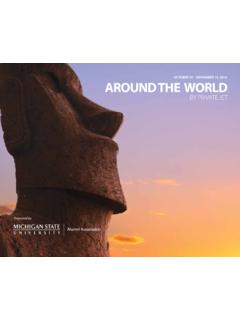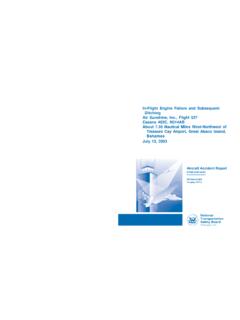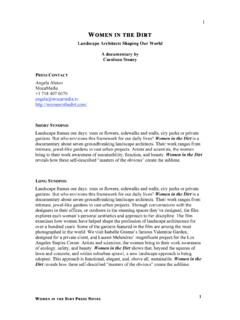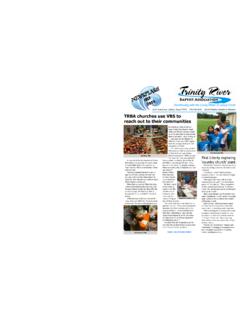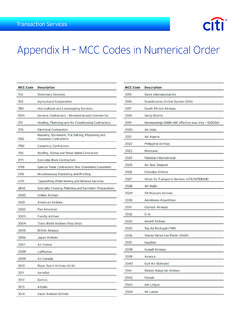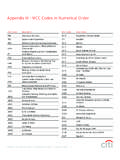Transcription of Lt. Marion Lee Sandy Kempner: Letters From Sandy*
1 Lt. Marion Lee & quot ; Sandy & quot ; kempner : Letters From Sandy * Marion Lee kempner (April 16, 1942-November 11, 1966), the author of these Letters , was born in Galveston, Texas, and died in Vietnam, fighting for the country he loved. & quot ; Sandy , & quot ; as he was a$ fectionately known, graduated from the Hill School in Pottstown, Pennsylvania, and went to Duke University where he earned a in 1964. His solid academic credentials a110 wed him to be ad- mitted to the law school of the University of Texas. Sandy had hopes of being a public-interest lawyer, but, stirred by the spirit that moved countless numbers of Americans before him to enlist in their nation's armed forces, he joined the United States Marine Corps and was eventually sent to Vietnam.
2 What do we know of Sandy ? From family sources we know that he showed a consistent interest in being a writer. We also know that he was particularly gifted in dealing with the problems of young people, and that the young found in him someone who understood. We also know that Sandy was a cultured, highly intelligent young man caught in the middle of an unpopular, vicious and often senseless war. We are fortunate to have his Letters from the battlefield, for they are filled with an understanding and insight that few other participants in the Vietnam war have managed to convey. Sandy 'spen has been silenced. But from what he has writ- ten we now know why the young came to him for advice and for friendship. We regret that we, too, could not have been his friends.
3 Lament for Sandy Gone is the nut-brown body-long limbed, narrow waisted, hon- * We are grateful to Mr. & Mrs. Harris kempner of Galveston, Texas, for allow- ing us to publish the Letters from their son, of blessed memory. The & quot ;Lament& quot ; in front of Sandy 's Letters was written by Harris kempner . 8 AMERICAN JEWISH ARCHIVES, APRIL, 1979 ed by the hard physical labor he sought each summer, and the run- ning schedule he followed so stringently. Gone are the flashing eyes and the Italianate-gesturing hands that always illumined his participation in the discussions he so dearly loved. Gone, too, is that dedication to the fellowship of man and the dignity of the individual which he defended so earnestly and volubly. Bias-religious or racial-he attacked, and often with a generous sprinkling of Anglo-Saxon four letter words.
4 Gone is the consideration for others and the personal charm which singularly marked his course through life: curiously enough, particularly appreciated by the older generations, but also men- tioned in Letters from his peers. Gone is the deep filial affection that, while it gave great devo- tion, also demanded of his parents rigorous loyalty to the ideals he ascribed to them. Gone, too, is his deep feeling, almost adoration, for his brother whom, nevertheless, he never hesitated to attack verbally and even physically in moments of sibling tension. Vanished are all these, expiring with his last breath on the helicopter on the way from his patrol to the Chu Lai Hospital, flowing out of the fragmentation-device wound in his abdomen which a fellow Marine described as & quot ;the only scar on his body.
5 & quot ; (The numerous scars and lesions of an active, peace-time boyhood don't count on the field of battle). But what of the rest-what of those acts of character and dedication that irradiated his short twenty-four years? The con- quering of his reading 'difficulties when he was eight-which handicap he turned into a passion for almost omnivorous reading? The time and energy he spent, in school and out of it, in understanding and helping those who resisted the mold of the school and of our culture? What of his loves-of the body and of the spirit-especially the eager anticipation in which he awaited the nephew whose arrival almost coincided with his own death? Are all these, too, cast on the winds of the eons, plucked of their individuality and meaning?
6 Yes, in the long run, but, like the flower he described, Sandy will always live in the memory of his bruised and grieving family, and, again like that flower, his having been was perhaps its own reward and the only recompense for our loss. Lt. Marion Lee & quot ; Sandy & quot ; kempner (April 16, 1942-November 11, 1966) LT. Marion LEE & quot ; Sandy & quot ; kempner 13 July, 1966 Okinawa Dear Mom, Dad, Peaches, Shrub, Quattle and ?: Last night we saw a movie called & quot ;Queen of Blood& quot ; which con- cerned a visitor from outer space who was human in form, bland- like in metabolism and vampire-like in diet. After gouging two astronauts, some lad finally scratched her and she promptly bleeds to death (green blood, yet). & quot ;She must have been a hemophiliac,& quot ; says John Saxon.
7 & quot ;She was probably a queen.& quot ; (Queen of blood, get it? Got it!). What do you expect for 35C, a Nobel prize winner already? This epic, believe it or not, is about as intelligent as anything I have run across on this island paradise. We took off from Travis, 167 strong, wedged into a 707 at some completely ridiculous time in the morning, alleviated only by the fact that the Officers Club at Travis is open 24 hours a day. Thereupon ensued a saga that would do credit to Marco Polo, Noel Coward, or even Mrs. D. W. kempner . We flew around for 18 or so hours, landing at Seattle (I was too sleepy to get out) and Tokyo (they didn't let us get out, and besides, it was raining like mad). We flew over the Pacific, (looked wet), the Arctic, (looked cold), Japan, (looked dreary), and lots of other interesting things that we could not see.
8 We had snacks consisting of, first, beef sandwiches, then melted cheese sandwiches, then both together, with the hot melted cheese flowing moistly into the beef sand- wiches. The stewardesses were ugly, the pilot almost crashed at Tokyo. We finally got to Okinawa, only to spend 30 minutes cir- cling above it before we landed, somewhat like a six-day bicycle race. We stumbled out into 87 degree heat and 97 percent humidi- ty, statistics which have not changed since we got here, still trying to figure out what time it was, is, will be, should have been, etc., and, to sum up, a perfectly delightful trip. The trucks did not come for us for three hours. Don't touch that dial, there's more to come. ( The two Special Services people that were on the plane were met by a Captain and a guy dressed in civilian clothes; both of the Special Services men, being enlisted, were immediately whisked away in a jeep; if they had been officers no doubt James Bond would have been down to greet them).
9 Finally, the trucks arrived, and we were trundled off to Camp Hanson, which is notable for two things, namely, that it is the sec- 10 AMERICAN JEWISH ARCHIVES, APRIL, 1979 ond most isolated camp on the island; and that the buildings which house transient officers are situated so as to be typhoonproof, which means that the windows face east and west which is, of course, directly into the sun and directly away from prevailing and strong south winds. The end result-that even with two fans no air comes into the windows, but a devastating amount of sun does, and the rooms, therefore, are at least 20 degrees warmer than out- side. Thus, you don't like to come back to your quarters all day until at least 9:00 and therefore must stay somewhere else, preferably air conditioned (A-men).
10 So where to go? You can go to the Officers Club which is very unpretentious but at least cooling. However, it is filled with Second Lieutenants trying to reenact half-forgotten movies of World War I flyers: & quot ;Eat, drink and drink, for tomorrow we may have to wake up,& quot ; and Majors who sit around mentally debating whether their anatomies can absorb as much as they used to, both alcoholic and sex-wise, while aloud telling lies and/or sea stories about World War '11, Korea, Tia- juana, treasure Island, etc., and explaining why they aren't Col- onels, (& quot ;So I said, 'Colonel, I don't have to take that from you,' and he said, 'The hell you don't, you-' When I hit him, he slid all the way down the bar at the Officers Club until he came to rest in front of General Green, upsetting the General's drink into his lap, etc.)

